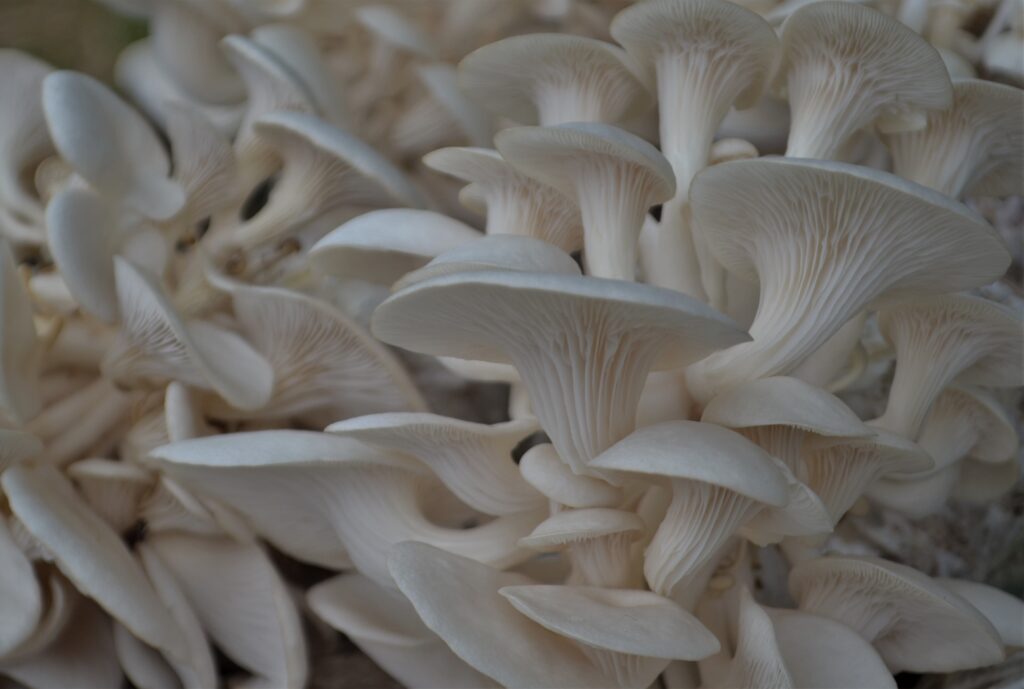Text and Photo by Leandrae T. Lapinig
The importance of edible mushrooms as food had been known among the ancient civilizations of Egypt, Rome and China. Egyptian pharaohs zealously kept the mushrooms for their own use, decreeing it was too delicate a morsel for commoners — who could eat garlic!
Like the Egyptians, the Romans restricted mushroom consumption to the nobility. Later, convinced that mushrooms gave their soldiers strength, the Romans permitted them to eat the fungus.
The ancient Chinese called mushrooms as “the divine fruit of immortality,” and Buddha is believed to have eaten them before being transported to nirvana.
Mushrooms, though classified as vegetables in the food world, are not technically plants. They belong to the fungi kingdom. And they contain some of the most potent natural medicines on the planet.
About 100 species of mushrooms are being studied for their health-promoting benefits. Of those hundred, about a half dozen really stand out for their ability to deliver a tremendous boost to your immune system.

Nutritionally speaking, mushrooms contain higher quality proteins than green plants, important minerals such as iron, phosphorus, potassium and calcium and nearly all vitamins, including vitamin D. Edible mushrooms are especially rich in Vitamins B and B2.
Moreover, mushrooms contain fibers, which stimulate digestion in humans, as well as other elements favorable for health. They are also high in antioxidants, selenium, riboflavin and other healthful substances.
Health benefits
Megan Ware, in an article which appeared in Medical News Today, enumerated some health benefits of eating mushrooms:
Cancer: Mushrooms contain just as high an antioxidant capacity as carrots, tomatoes, green and red peppers, pumpkins, green beans, and zucchini.
Selenium is a mineral that is not present in most fruits and vegetables but can be found in mushrooms. It plays a role in liver enzyme function, and helps detoxify some cancer-causing compounds in the body. Additionally, selenium prevents inflammation and also decreases tumor growth rates.
Studies conducted at California’s Beckman Research Institute show that mushroom cells contain mechanisms that suppress breast and prostate cancer cells.
Other research suggests that some mushroom extracts can help reduce cancer treatment side effects. When people took the mushrooms a week before they started treatment, they did appear to help with side effects of both chemotherapy and radiotherapy, including sickness and hair loss.
Diabetes: Studies have shown that type 1 diabetics who consume high-fiber diets have lower blood glucose levels and type 2 diabetics may have improved blood sugar, lipids and insulin levels.

Heart health: The fiber, potassium and vitamin C content in mushrooms all contribute to cardiovascular health. Potassium and sodium work together in the body to help regulate blood pressure. Consuming mushrooms, which are high in potassium and low in sodium helps to lower blood pressure and decrease the risk of high blood pressure and cardiovascular diseases.
Immunity: Selenium has also been found to improve immune response to infection by stimulating production of killer T-cells. The beta-glucan fibers found in the cell walls of mushrooms stimulate the immune system to fight cancer cells and prevent tumors from forming.
More health benefits
The website of Organic Facts also cites the following health benefits of mushrooms:
Cholesterol levels: Mushrooms themselves provide a person with lean proteins since they have no cholesterol or fat and are very low carbohydrates. The fiber and certain enzymes in mushrooms also help lower cholesterol levels. Moreover, the high lean protein content in mushrooms helps burn cholesterol when they are digested.
Blood pressure: Studies of various types of mushrooms have shown them to be high in potassium content. Potassium acts as a vasodilator, relaxing tension in blood vessels and therefore reducing blood pressure. High blood pressure is connected to a number of deadly conditions, particularly heart attacks and strokes. Potassium also increases cognitive function, because increased blood and oxygen flow to the brain stimulates neural activity. Studies have shown that increased levels of potassium improve memory and knowledge retention.
Anemia: Anemic patients are characterized by having low levels of iron in their blood, resulting in fatigue, headaches, reduced neural function, and digestive issues. Mushrooms are a good source of iron, and over 90% of the nutritive iron value can be absorbed by the body, which promotes the formation of red blood cells and keeps people healthy and functioning at their full potential.
Not created equal
Unfortunately, not all mushrooms are created equal, says Dr. Andrew Weil, founder and director of the Arizona Center for Integrative Medicine at the University of Arizona Health Sciences Center. He mentions four varieties which are good, health wise:
Shiitake: Also known as the oak, Chinese, or black forest mushroom, these mushrooms have broad, umbrella-shaped caps and wide-open veils. Animal studies have shown that these flavorful and readily available mushrooms have anti-tumor, cholesterol-lowering, and antiviral properties.
Enoki: Characterized by their fragile, flower-like shape with long, slender stems and tiny caps, they appear to have significant anti-cancer and immune-enhancing effects, according to Dr. Weil.
Maitake: Also known as ‘hen of the woods,’ these mushrooms are characterized by a cluster of dark fronds with firm and supple texture at base that become brittle and crumbly at the edges. This variety may have anti-cancer, antiviral, and immune-enhancing properties. It may also reduce blood pressure and blood sugar, says Dr. Weil.
Oyster: They are characterized by their fluted and graceful appearance; color ranges from soft brown to gray. Less expensive — and less flavorful — than shiitakes, these mushrooms may also provide some protection against cancer, Dr. Weil says.
Warning
But before you eat that mushroom, here’s a warning. In November 2012, The Atlantic published an article stating that of the over 10,000 species of mushrooms, only about 50 to 100 are toxic. The website of Organic Facts reiterates: “Some species of mushrooms are not edible, are highly poisonous and look strikingly similar to their edible counterparts. Don’t ever try picking mushrooms for consumption from the woods unless you have been trained to identify them very well.”








